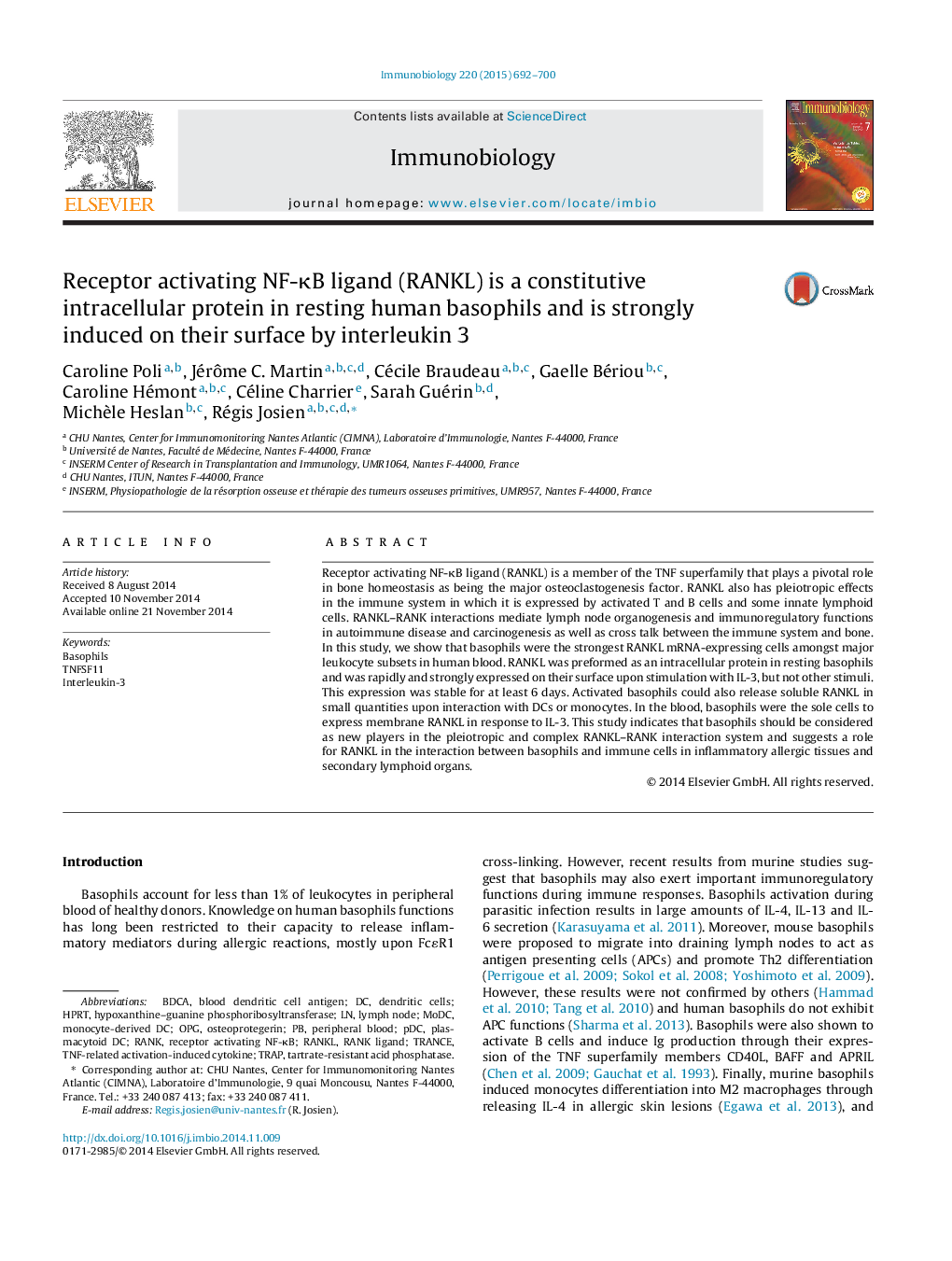| Article ID | Journal | Published Year | Pages | File Type |
|---|---|---|---|---|
| 10940954 | Immunobiology | 2015 | 9 Pages |
Abstract
Receptor activating NF-κB ligand (RANKL) is a member of the TNF superfamily that plays a pivotal role in bone homeostasis as being the major osteoclastogenesis factor. RANKL also has pleiotropic effects in the immune system in which it is expressed by activated T and B cells and some innate lymphoid cells. RANKL-RANK interactions mediate lymph node organogenesis and immunoregulatory functions in autoimmune disease and carcinogenesis as well as cross talk between the immune system and bone. In this study, we show that basophils were the strongest RANKL mRNA-expressing cells amongst major leukocyte subsets in human blood. RANKL was preformed as an intracellular protein in resting basophils and was rapidly and strongly expressed on their surface upon stimulation with IL-3, but not other stimuli. This expression was stable for at least 6 days. Activated basophils could also release soluble RANKL in small quantities upon interaction with DCs or monocytes. In the blood, basophils were the sole cells to express membrane RANKL in response to IL-3. This study indicates that basophils should be considered as new players in the pleiotropic and complex RANKL-RANK interaction system and suggests a role for RANKL in the interaction between basophils and immune cells in inflammatory allergic tissues and secondary lymphoid organs.
Keywords
PDCTNFSF11RANKLPlasmacytoid DCTRAPOPGMoDCBDCAHprtTRANCETNF-related activation-induced cytokineMonocyte-derived DCBlood dendritic cell antigenOsteoprotegerintartrate-resistant acid phosphataseInterleukin-3basophilsPeripheral bloodRankDendritic cellsRANK ligandHypoxanthine–guanine phosphoribosyltransferaseLymph node
Related Topics
Life Sciences
Biochemistry, Genetics and Molecular Biology
Cell Biology
Authors
Caroline Poli, Jérôme C. Martin, Cécile Braudeau, Gaelle Bériou, Caroline Hémont, Céline Charrier, Sarah Guérin, Michèle Heslan, Régis Josien,
